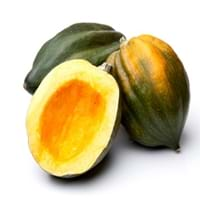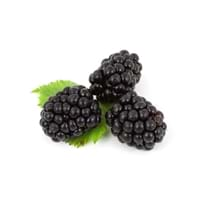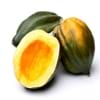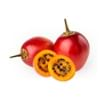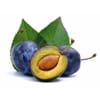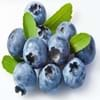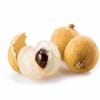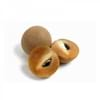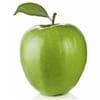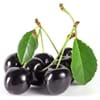Health Benefits
Anti-inflammatory properties, Arthritis treatment, Regulates Blood Sugar
Cancer prevention, Heart care, Increases metabolic rate, Reduces stress, Treatment of dysentary, Treatment of skin Diseases
General Benefits
Boosts immune system, Controls blood sugar levels, Digestive aid
Digestive aid, Maintains healthy cholesterol level, Strengthens bones
Skin Benefits
Nourishes skin, Protects skin from oxidative stress
Hydrates skin, Skin rejuvenation, Skin revitalization
Hair Benefits
Prevents hair loss, Promotes longer and healthier hair, Regulates hair growth
Promotes longer and healthier hair
Allergy Symptoms
Asthma, Red rash, Swelling of mouth, tongue or lips
Facial muscle tension, Pressure in sinus, Respiratory congestion, Runny nose, Sneezing, Tingling sensation in wrist and face
Side Effects
Diarrhoea, Vomiting
Nausea, Vomiting, Might cause change of urine color
Best Time to Eat
Along with meal, As a snack in the late afternoon, Don't eat after meal, Eat the fresh ones, avoid mixing with any other foods, don't eat after meal.
Best if taken as a breakfast (or empty stomach), As a snack in the late afternoon, Don't consume at night and before bed, Eat the fresh ones, avoid mixing with any other foods, don't eat after meal., Morning time (before lunch)
Vitamin B5 (Pantothenic Acid)
Vitamin C (Ascorbic Acid)
Vitamin E (Tocopherole)
Not Available
Vitamin K (Phyllochinone)
Not Available
Lutein+Zeaxanthin
Not Available
Calories in Fresh Fruit with Peel
Calories in Fresh Fruit without Peel
Not Available
Not Available
Calories in Pie
Not Available
Season
Winter
Spring, Summer
Varieties
Bush Table Queen, Heirloom Table Queen, Festival Hybrid, Early Acorn Hybrid, Table Ace, Ebony and Cream of the Crop
Prime Ark, Prime Jim, Illini Hardy, Kiowa, Shawnee, Apache, Arapaho, Chester, Hull, Natchez, Navaho and Triple Crown and Von
Color
Dark green, Green-yellow, Orange green
Purplish black
Inside Color
Yellow
Magenta
Taste
Sweetish
Juicy, Sweet
Origin
Central America, North America, Unknown
Asia, Europe, North America, South America
Soil Type
Well-drained
Well-drained
Climatic Conditions
Cold, Sunny
Dry, Warm to hot climate
Facts about
- It was named as Acorn Squash for its resemblance to a large ribbed acorn.
- It is said that squash was being grown in Mexico as long as 10,000 years ago.
- It was the first food cultivated by native American Indians.
- There are around 2000 varieties of blackberries throughout the world.
- 80-85 degrees is the ideal temperature for its production.
- Leaves of blackberry tree are used to treat sore throats and mild inflammation of the gums.
Top Producer
China
United States of America
Other Countries
Egypt, India, Iran, Italy, Mexico, Russia, Turkey, Ukraine, United States of America
China, New Zealand, Serbia, South Africa
Top Importer
Costa Rica
United States of America
Top Exporter
United States of America
Mexico
Botanical Name
Cucurbita Pepo
Rubus Fruticosus
Synonym
Winter Squash
Rubus Millspaughii or Rubus Laciniatus
Subkingdom
Tracheobionta
Tracheobionta
Division
Magnoliophyta
Magnoliophyta
Class
Magnoliopsida
Magnoliopsida
Subclass
Dillenhidae
Rosidae
Order
Cucurbitales
Rosales
Family
Cucurbitaceae
Rosaceae
Species
Pepo
Rubus fruticosus
Generic Group
Not Available
Rose
Compare Acorn squash and Blackberry
It is important compare Acorn squash and Blackberry as both the fruits have a different nutritional value. Their comparison can be done on the basis of their vitamin and mineral content, calories, benefits as well as characteristics, making it easier for us to choose the best fruit for our diet. Their general health benefits are as follows:
Acorn squash Benefits: boosts immune system, controls blood sugar levels and digestive aid.
Blackberry Benefits: digestive aid, maintains healthy cholesterol level and strengthens bones.
Fruits are also used as a remedy for various hair problems. The hair benefits of Acorn squash are: prevents hair loss, promotes longer and healthier hair and regulates hair growth and hair benefits of Blackberry are: promotes longer and healthier hair. Some fruits are known to cause allergic reactions. The allergy symptoms of first fruit are: asthma, red rash and swelling of mouth, tongue or lips and the symptoms of second fruit are: facial muscle tension, pressure in sinus, respiratory congestion, runny nose, sneezing and tingling sensation in wrist and face. Get sorted Acorn squash vs Blackberry comparison with the help of fruit comparison tool by fruitvs.com.
